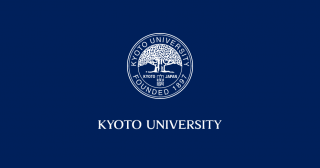Clinical sequencing, which consists of comprehensive analysis of gene mutations in a cancer patient aimed at identifying the most effective drug for that individual, will soon become available at Kyoto University Hospital. This development, scheduled for April 2015, will make KU Hospital Japan's first medical provider to implement comprehensive oncogene analysis for clinical purposes. The sequencing service to be provided is intended for patients with cancers of unknown primary (CUP), rare cancers, and cancers that do not respond to standard therapies. It involves examining genetic mutations in the affected tissue and, utilizing cutting-edge information and communication technology (ICT), searching for information that could assist in diagnosis and/or treatment.
Genetic mutations underlie all types of cancer. The types of mutations at work vary from case to case, even when the organ involved is the same, and some mutation types are known to adversely affect the efficacy of antitumor agents. Some forms of genetic testing are already being used in hospitals to address this issue. However, with those conventional testing techniques, only certain types of mutations in specific genes can be investigated.
With clinical sequencing, on the other hand, more than 200 cancer-related genes can be examined in a single testing procedure. This could, for example, help a physician treating a CUP patient to identify a likely site of the primary lesion (which may be in the lungs, colon, or a mammary gland), which can then be targeted for treatment. In the case of a rare cancer or one that has become unresponsive to standard treatment, clinical sequencing could help identify the mutations responsible for the condition and point to a drug (or drug candidate) that is known to be effective against them.
Although recent years have seen rapid growth in the use of clinical sequencing in some parts of the world, most notably in the United States, the high level of technical knowledge required for interpreting the results and the challenges involved in ensuring test quality have made the procedure inaccessible to most Japanese hospitals. Against this backdrop, KU Hospital has partnered with Mitsui Knowledge Industry to build a sequencing facility that is equipped with adequate quality control tools and that meets the requirements of the Clinical Laboratory Improvement Amendments (CLIA). Going forward, the Hospital hopes to utilize clinical and genetic data obtained through its sequencing services in development of a personalized cancer treatment system based on compilation of consenting patients’ information into a database while ensuring patient anonymity.
KU Hospital is committed to working to deliver the best possible care for each patient by combining the latest advances in genomic medicine, computational science, and ICT.

Related link
- About the clinical sequencing services offered at Kyoto University Hospital
http://oncoprime.cancer.kuhp.kyoto-u.ac.jp/ (in Japanese)
Inquiries
Kyoto University Hospital
Phone: +81-75-751-4349 (for clinical sequencing for cancer patients)





